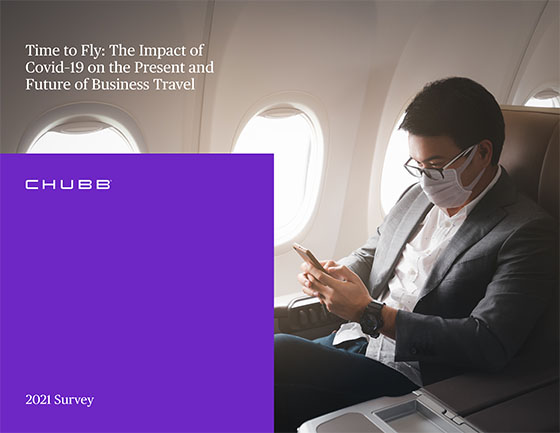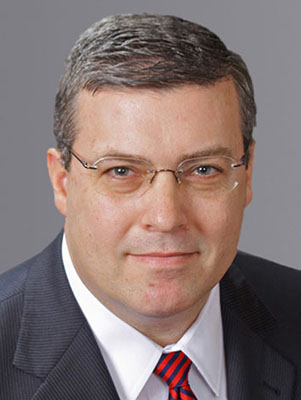Business travelers around the world agree: Job effectiveness has suffered from the pandemic and travel restrictions
A new Chubb survey finds that business travelers around the world believe the Covid-19 pandemic and related travel restrictions have negatively impacted their effectiveness on the job as well as the ability of their employers to develop business, serve clients and maintain business relationships. At the same time, business travelers report that they have personally missed traveling for work and leisure, and are eager to get back on the road.
Download the survey report here

As businesses and families prepare for a return to a version of normality, Chubb, the world’s largest publicly traded property and casualty insurance company, wanted to gauge perceptions about the impact of the pandemic on travel. What was lost during this period of severely limited travel? How did it impact the effectiveness of business travelers and their employers? In a remote working environment, with few or no opportunities to travel, what worked and what didn’t?
The answers to these and other questions are important, as businesses make decisions about future travel budgets, return to office, and the new criteria for traveling to meet with clients, develop business or attend conferences. What travel can be effectively replaced by meeting virtually? What is the opportunity cost of staying at your desk instead of getting on a plane?
This is the first survey of its kind to gauge the views of business travelers across the world — in the United States, Europe, Asia Pacific and Latin America.
Survey findings address key attitudes about a return to business travel and how the lockdown has impacted business.
Among the key findings of the survey:
- Globally, 80% or more of business travelers believe they are missing something important when they cannot see body language or other visual clues that you can only get in an in-person meeting.
- Nearly three out of four business travelers (74%) say they are less effective in their job due to the pandemic and severely limited travel opportunities. Areas that have been negatively impacted include client service and the ability to maintain relationships with clients and business partners.
- With the proper precautions, respondents are twice as likely to feel more comfortable traveling for business than for leisure. One reason cited: business is important to their livelihood.
- A clear majority of business travelers (69%) expect that company travel budgets will be trimmed in a post-Covid world to reduce expenses.
- 75% of business travelers are willing to pay more to keep the middle seat open when they fly.
- 87% of business travelers have been personally concerned about contracting Covid during the pandemic, and take steps to protect themselves, including wearing masks and social distancing. A smaller share (74%) say they always follow government rules. Another 24% say they sometimes follow Covid restrictions. Adherence to Covid safety protocols is highest among travelers in Latin America at 87%.
 |
Our survey shows that business travelers are now paying closer attention to what travel insurance coverage they have before they take a trip. As Covid recedes as a barrier to travel, the importance of best-in-class travel medical coverage and employer duty of care are increasingly being recognized.
 |
North America Accident and Health |
One of the most striking findings of our survey is how much business travelers in all regions agree: The pandemic, and the travel limitations that came with it, have cost business travelers and their employers the ability to effectively serve clients and maintain relationships with clients and business partners. This was the view of nearly 75% of respondents around the world. It didn't matter where they live, how much they earn or how frequently they travel. We did find some differences in responses by age group, but that was largely limited to questions about fears of contracting Covid. Younger business travelers, for example, had a higher tolerance for Covid risks.